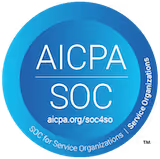Open Source Begets Open Source: How Tesla is Accelerating AI

Tesla recently made waves by announcing the open-sourcing of its Tesla Transport Protocol over Ethernet (TTPoE), a cutting-edge network fabric designed for high-speed, low-latency data transport in AI/ML data center environments. This move mirrors Tesla’s broader history of leveraging open-source strategies to accelerate industry-wide progress, such as its well-known decision to share its electric vehicle patents back in 2014. Tesla's actions not only foster technological innovation but also set a precedent for other companies to open-source their own innovations, reinforcing the concept that open source begets more open source.
The idea of open-source as a catalyst for more open-source innovation is not new, particularly for Tesla. In fact, Tesla's release of EV patents helped create a more standardized ecosystem in the electric vehicle industry, driving adoption and innovation faster than proprietary models would have allowed. This "network effect" of open-source technologies benefits not only individual contributors but also the entire industry, as new participants build upon and improve existing innovations.
Tesla’s latest decision to open-source TTPoE further demonstrates this principle. By opening access to its advanced networking protocol, Tesla encourages collaboration and faster technological advancements in fields like AI and machine learning, which benefit from highly scalable and efficient networking solutions. This ripple effect has been seen in other industries, such as Toyota’s release of hybrid vehicle patents and Nike’s open-source sustainability tools.
Open-sourcing has a variety of benefits including the lowering of development costs, promoting interoperability, return on investment and lower barriers to entry for smaller players. The result is an ecosystem where innovation thrives through collaboration rather than competition—a win for both industry leaders and the broader community. Tesla’s strategy exemplifies how open-source innovation can lead to widespread industry improvements, ultimately benefiting consumers and accelerating the adoption of new technologies.
At MinIO, we appreciate the broader industry's shift towards open-source principles as a way to foster collaboration and accelerate innovation. This open-source virtuous cycle—where contributions invite further contributions—underscores the transformative power of transparency and collaboration across the tech industry.
With Tesla's recent decision to open-source TTPoE, we anticipate that more industries will adopt open-source models, driving future innovation not only in automotive and AI but across a wide range of sectors.






